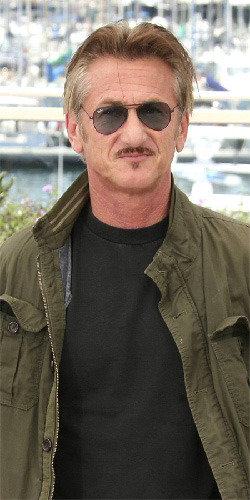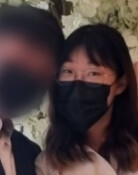'Cruel reality cannot be shown through fairy story, says Sean Penn
'Cruel reality cannot be shown through fairy story, says Sean Penn
Posted May. 23, 2016 07:37,
Updated May. 23, 2016 07:45

U.S. filmmaker Sean Penn did not seem intimidated by the criticism of the movie that he directed. "The Last Face" was introduced in the second half of the 69th Cannes International Film Festival held from May 11 to May 22. The movie received severe criticism.
Immediately after a press interview on Friday (local time), people started criticizing the movie on the Internet. On Saturday, Screen International magazine, which gathers movie reviews from experts from all over the world, gave Penn's movie an average score of 0.2 out of 4. During an interview with the Dong-A Ilbo, Penn noted, "The criticism is irrelevant to me." He even criticized experts and the media: "They overvalue the public relations' factor when evaluating the arts."
The movie is a story of love and conflict between Wren (Charlize Theron) and Miguel (Javier Bardem) who work in a UN refugee camp. The story takes place in Liberia, Africa in 2003 during the civil war. The movie shows the reality of Africa and calls for the audience to take action to help people there.
The movie was criticized for "objectifying refugees" in various ways such as portraying horrible injuries that civilians had during battles, miserable life in refugee camps, and choosing a Caucasian actress to play the main character. "If the audience felt uncomfortable about what they saw in the movie, it means that they had been ignorant about reality. I just wanted to share with the audience what I have seen and experienced," Penn argued.
"Those who are walking in this neighborhood pretend that they represent their own ideas, but the truth is that they just follow whoever looks better than themselves," he said. "The media seems to be competing with each other on who makes lazier evaluations about someone else's work."
When asked about the humanitarian relief activities that he had been doing in Haiti after the great earthquake in 2010, Penn calmed down and responded passionately.
"I realized that directing a film and directing a camp require similar skills. You have to deal with emergency situations that are not in your planned budget. You might be doing things that you should have done yesterday," he answered.
When asked about his son, Hopper Penn, who appeared in the movie as a supporting actor, the father could not hide the smile from his face. "Hopper is very passionate. He worked in Haiti helping victims of the earthquake for about four months before the filming began," the movie director said. "If you want to know more, you should ask questions to him directly."
The reporter asked, "When you interviewed various controversial figures such as Cuban President Raul Castro and Mexican drug lord Joaquin Guzman and traveled to conflict areas, did you feel afraid?" Penn answered, "I will die some day. I will probably live until God tells me to leave this world."
"I am not trying to save the world through a movie. Such approaches as 'Let us save the world with something beautiful' do not work in harsh reality. We need a more powerful tool," he said. "There are many heroes working in the field as we speak. They deserve better."
칸=이새샘기자 iamsam@donga.com
Headline News
- Med professors announce intention to leave hospitals starting Thursday
- Bridge honoring Sgt. Moon Jae-sik unveiled in Pennsylvania
- Chief of Staff Chung tells presidential secretaries to stay away from politics
- US FTC bans noncompete agreements
- N. Korea launches cyberattacks on S. Korea's defense companies







